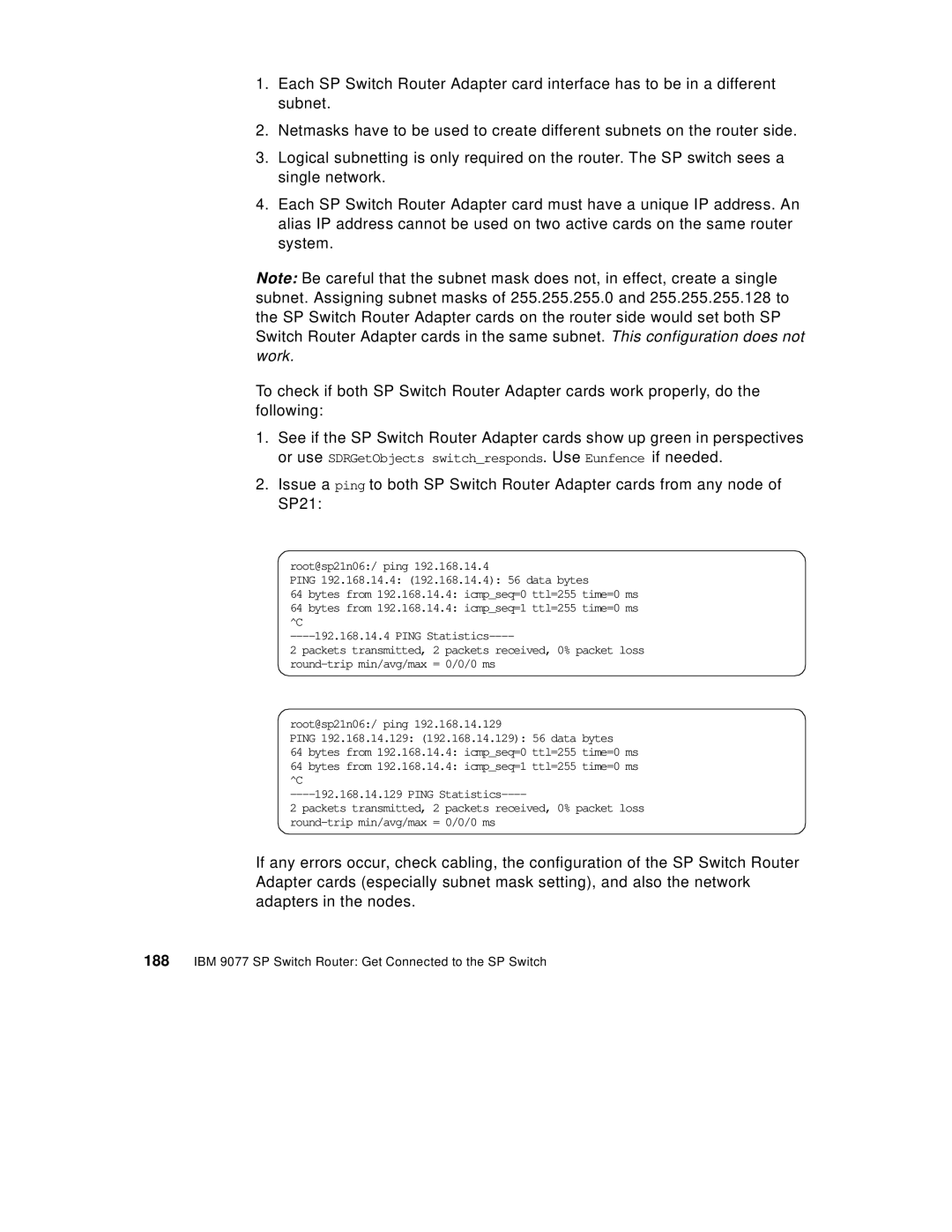
1.Each SP Switch Router Adapter card interface has to be in a different subnet.
2.Netmasks have to be used to create different subnets on the router side.
3.Logical subnetting is only required on the router. The SP switch sees a single network.
4.Each SP Switch Router Adapter card must have a unique IP address. An alias IP address cannot be used on two active cards on the same router system.
Note: Be careful that the subnet mask does not, in effect, create a single subnet. Assigning subnet masks of 255.255.255.0 and 255.255.255.128 to the SP Switch Router Adapter cards on the router side would set both SP Switch Router Adapter cards in the same subnet. This configuration does not work.
To check if both SP Switch Router Adapter cards work properly, do the following:
1.See if the SP Switch Router Adapter cards show up green in perspectives or use SDRGetObjects switch_responds. Use Eunfence if needed.
2.Issue a ping to both SP Switch Router Adapter cards from any node of SP21:
root@sp21n06:/ ping 192.168.14.4
PING 192.168.14.4: (192.168.14.4): 56 data bytes
64 bytes from 192.168.14.4: icmp_seq=0 ttl=255 time=0 ms
64 bytes from 192.168.14.4: icmp_seq=1 ttl=255 time=0 ms ^C
2 packets transmitted, 2 packets received, 0% packet loss
root@sp21n06:/ ping 192.168.14.129
PING 192.168.14.129: (192.168.14.129): 56 data bytes
64 bytes from 192.168.14.4: icmp_seq=0 ttl=255 time=0 ms
64 bytes from 192.168.14.4: icmp_seq=1 ttl=255 time=0 ms ^C
2 packets transmitted, 2 packets received, 0% packet loss
If any errors occur, check cabling, the configuration of the SP Switch Router Adapter cards (especially subnet mask setting), and also the network adapters in the nodes.
